Study Tours: India - Out of India
Helen Moylett and Di Chilvers
Monday, November 14, 2016
Two participants in Nursery World’s latest study tour, Helen Moylett and Di Chilvers, describe their positive experiences of visiting some of the country’s childcare settings

When we joined our 12 colleagues on the Nursery World study tour of India, we weren’t sure what to expect. The programme looked exciting – starting in Mumbai and taking us to Mysore, Calicut and Kochi, with various places in between. But a programme studied in the educational context and climate of the UK is very different from a programme experienced in the land of contrasts that is India.
The reality was mind-blowing. Our Indian tour guide, Dinesh (not an educationalist but a very wise man), engaged in debate with us about the pre-schools we visited, but also enlightened us on Indian philosophy, religion and culture, and his story-telling was the stuff of legend – a highlight being the serial version of the Ramayana.
We visited many interesting places including temples and maharajahs’ palaces, ate lots of delicious food and even went on safari and saw elephants and a tiger in the wild. However, our main focus was visiting pre-schools and we visited seven very different settings. We have picked two to discuss here – one in a city slum and one in the countryside.
‘ANGANWADIS’
The first was Door Step School, which runs Anganwadis in Mumbai. Some 60 per cent of Mumbai’s population live in the slums, which are highly sophisticated communities, even if by UK standards they are poor and impermanent and lacking many of the facilities we regard as basic, such as indoor sanitation.
In English translation, an Anganwadi is a ‘courtyard space’, which is how these pre-schools were formed… in any available space both in the city and in the countryside.
In the cramped conditions of Door Step (25 children per adult, with everything done on the floor), Mansi, the leader, talked passionately about what she and her team are doing:
• ‘We are breaking the cycle of poverty by empowering the children through education.’
• ‘Parents are very important – they are the main stakeholders in what we do.’
• ‘The child has to be at the centre – we knew this from the start.’
• ‘We want the children to use their minds so we talk with them and ask them questions.’
We spent time observing the practice and saw sensitive staff providing caring, positive role models and interacting with the children in ways that encouraged thinking and learning.
Although many of the staff are not formally qualified, they are ‘grown’ from the community through training and support, which includes two Saturdays every month to share practice together and explore children’s thinking. From children and adults, we got a real sense of resilience and their eagerness to learn together.
We also experienced this eagerness to learn and share in a village Anganwadi outside Mysore. Here the premises were not much larger, but the outdoor surroundings and air were cleaner and much safer. What struck all of us was the enthusiasm of the staff and the involvement of the mothers in improving their own lives and prospects, through education for their children and government loans for them to set up small businesses.
The other settings we went to included a Montessori nursery that also catered for children with special needs, and a school for tribal children. We visited nurseries and kindergartens belonging to large chains, such as Podar Jumbo Kids and Eurokids, growing quickly across India. These settings are more generously financed and depend on parents paying fees. They make stringent efforts to ensure consistency across their hundreds of settings, but recognise there is a long way to go to ensure quality across the board.
RECOMMENDATIONS
The Early Childhood Association, which includes the Reggio Emilia (India) Foundation in its membership, has recently published a list of recommendations for Maneka Gandhi, the minister for women and child development. These include minimum qualifications and CPD for teachers, improved ratios, quality control and industry standards, as well as a common curriculum and stress-free education, including banning homework and school bags for children up to five.
There are many reminders here of the UK early education and childcare scene before we had common curriculum frameworks for all early years settings in each country plus rigorous inspection regimes.
It might be tempting to characterise India as behind us on this journey, and in some aspects perhaps it is, but the important things are in place in the best settings – just like they are in the UK.
Regardless of parents’ income or social standing, what matters in India, just like here, and what will lift children out of poverty, is the positive relationships and enabling environments the adults provide.
In settings where adults are knowledgeable, caring and understand that play is fundamental and that learning starts with the child not the curriculum, children from all cultural and social backgrounds flourish and grow. They become resilient, creative and competent thinkers and learners who relish each day for the opportunities it brings.
The study tour enabled us to stand back from the UK, to learn a little about other cultures and to debate what matters in early years for the children of the world. It was a life-changing opportunity and we would like to thank Liz Roberts for her leadership and the team at Master Travel for making it all happen.
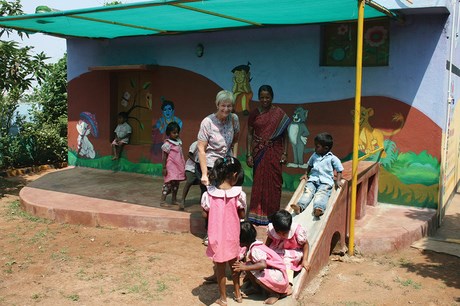
Mysore anganwadi
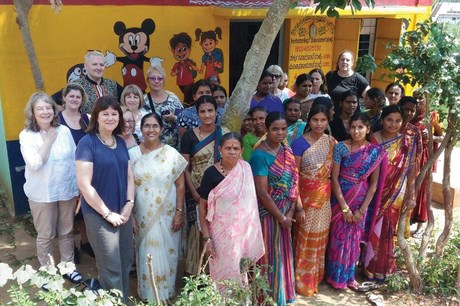
Mothers by the village anganwadi
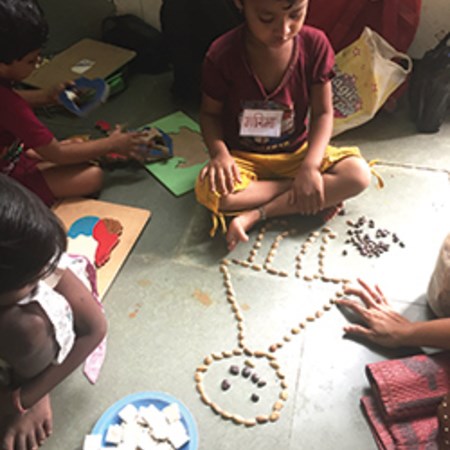
Door Step School, Mumbai
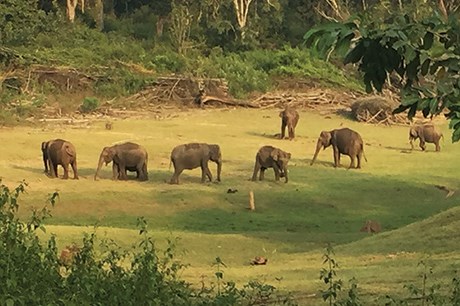 Elephants at Nagarhole
Elephants at Nagarhole
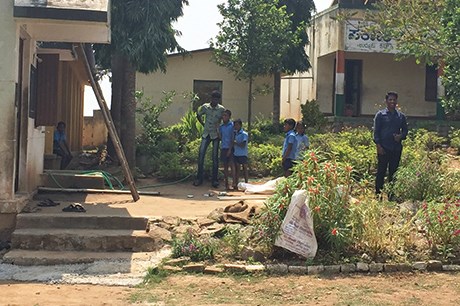
School for tribal children
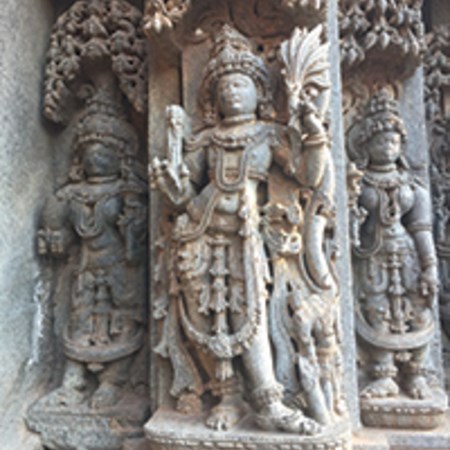
Temple carvings
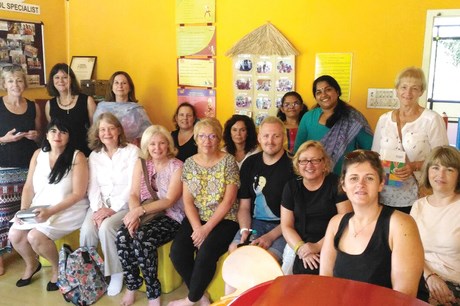
Our group at Eurokids
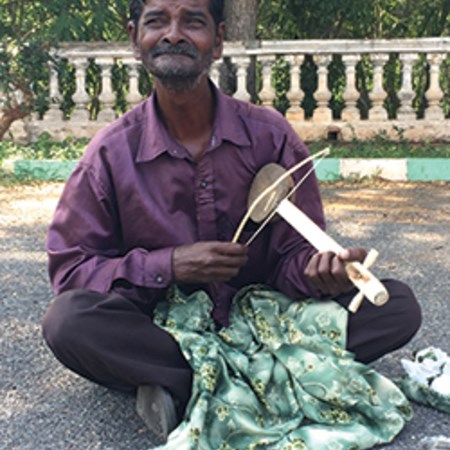
Magician
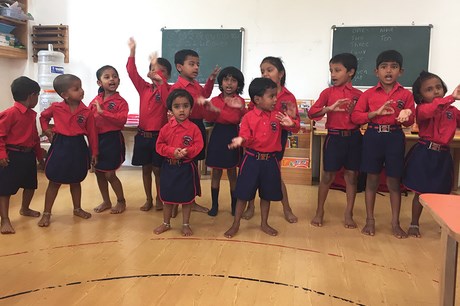
Lawrence Montessori
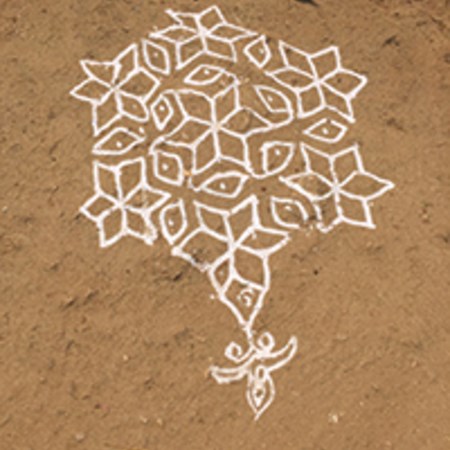
Welcome sign at the anganwadi
MORE INFORMATION
• Early Childhood Association, www.eca-india.org
• Reggio Emilia (India) Foundation, www.reif.co.in
• Di Chilvers’ blog on the NW India study tour, http://watchmegrow.uk/blog
• Lisa Collins and Angie Ward from Daisy and Jake’s blog on the NW India study tour, www.daisyandjake.co.uk/blog
• Join Nursery World and Master Travel on trips to Finland and Sweden (11-18 February 2017); Denmark (27 May-3 June); China (August 2017); and India (October 2017).
More information at www.mastertravel.co.uk or email samantha.prattey@markallengroup.com




